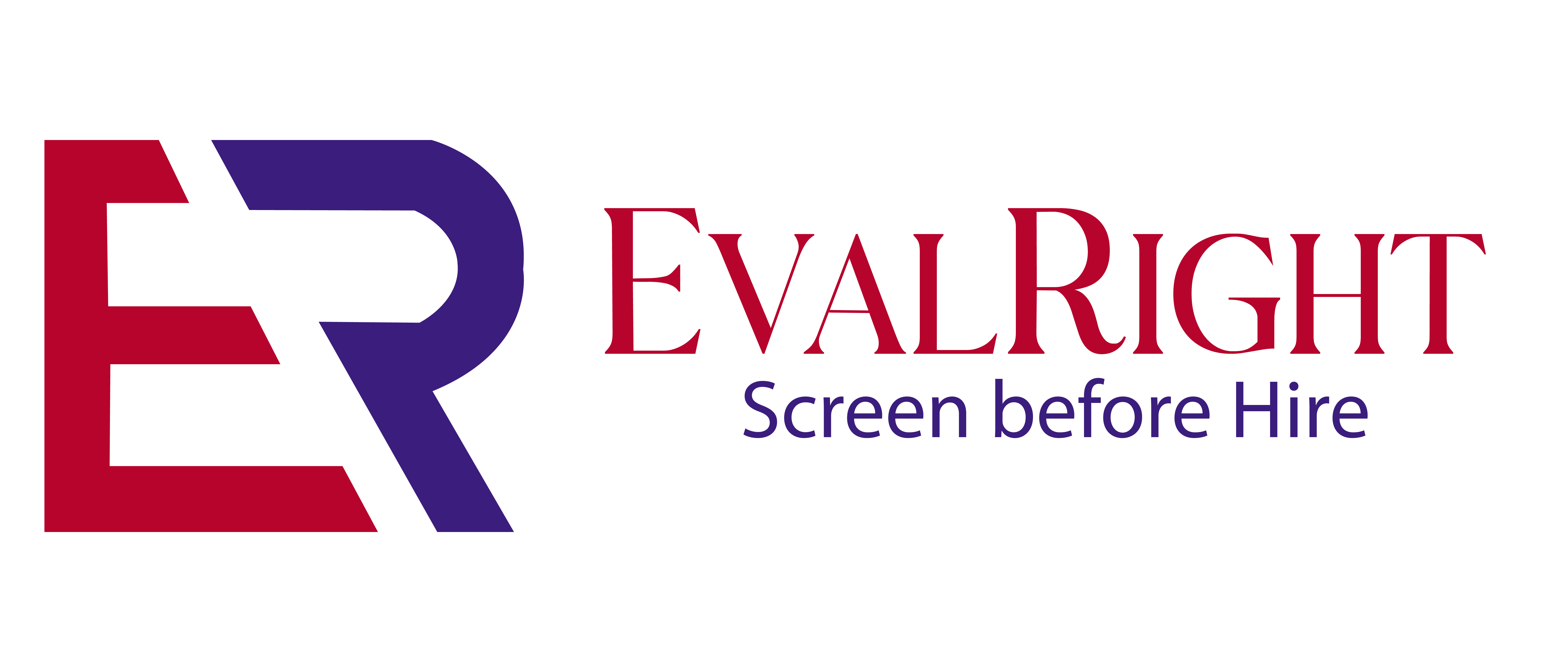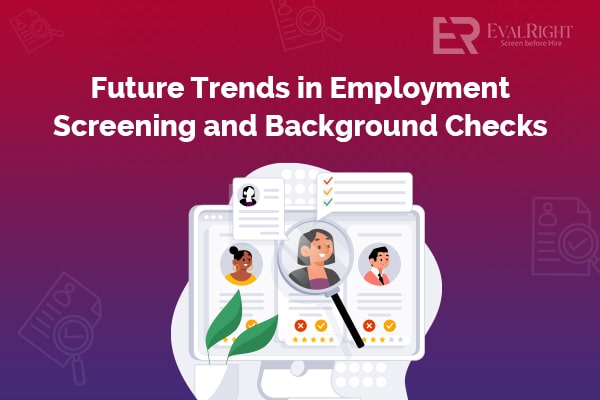Future Trends in Employment Screening and Background Checks
In the evolving landscape of human resources, employment screening, and background checks are critical for ensuring a safe and efficient hiring process. As technology advances, new trends are emerging that promise to revolutionize these practices. This article explores these future trends, providing a comprehensive guide to what HR professionals can expect in the coming years.
The Growing Importance of Employment Screening and Background Checks
Employment screening and background checks have become indispensable tools for organizations looking to make informed hiring decisions. They help in verifying the credentials of potential employees, ensuring workplace safety, and maintaining organizational integrity. As companies recognize the value of these processes, they are investing more in innovative solutions to enhance their effectiveness.
echnology-Driven Screening Solutions
The integration of advanced technologies is transforming employment screening and background checks. Automation, artificial intelligence (AI), and machine learning (ML) are at the forefront of this transformation, making these processes more efficient, accurate, and faster.
#Artificial Intelligence in Screening
AI is playing a pivotal role in modernizing employment screening. It can analyze vast amounts of data quickly, identifying patterns and inconsistencies that human reviewers might miss. AI-driven tools can assess social media activity, employment history, and other relevant data points, providing a comprehensive view of a candidate’s background.
#Blockchain for Data Integrity
Blockchain technology is being adopted to enhance the security and integrity of background check data. By creating a decentralized ledger of verified information, blockchain ensures that the data is tamper-proof and easily accessible to authorized parties. This reduces the risk of fraud and enhances the reliability of background checks.
The Rise of Continuous Background Checks
Traditionally, background checks have been a one-time process conducted during hiring. However, continuous background checks are emerging as a new trend. These ongoing checks monitor employees throughout their tenure, ensuring that any new issues are promptly identified and addressed. This proactive approach helps in maintaining a safe and compliant workplace.
#Biometric Verification
Biometric verification is gaining traction in employment screening. Technologies like fingerprint scanning, facial recognition, and iris scanning provide an additional layer of security, ensuring that the person being screened is indeed who they claim to be. These methods are not only more secure but also more convenient for both employers and candidates.
Enhanced Data Privacy Regulations
As data privacy concerns grow, new regulations are being implemented to protect individuals’ personal information. The General Data Protection Regulation (GDPR) in Europe and the California Consumer Privacy Act (CCPA) in the United States are examples of such regulations. Companies must stay abreast of these changes and ensure that their screening processes comply with all relevant laws to avoid legal repercussions.
Global Screening Challenges and Solutions
With the globalization of the workforce, employers are increasingly hiring candidates from different parts of the world. This presents unique challenges in employment screening, including varying legal requirements and data availability. Companies are turning to global screening solutions that offer comprehensive checks across multiple countries, ensuring compliance with local laws and standards.
The Role of Social Media in Background Checks
Social media platforms are becoming a valuable resource for background checks. Employers can gain insights into a candidate’s personality, values, and behavior through their social media activity. However, this must be done with caution to respect privacy and avoid discrimination.
Ethical Considerations in Employment Screening
As employment screening becomes more sophisticated, ethical considerations are paramount. Companies must balance the need for thorough background checks with respect for candidates’ privacy and rights. Clear policies and guidelines should be established to ensure fair and non-discriminatory practices.
The Impact of #COVID-19 on Employment Screening
The COVID-19 pandemic has significantly impacted employment screening processes. Remote work has increased the need for virtual screening solutions, including video interviews and online verification tools. Companies are also placing greater emphasis on health screenings to ensure workplace safety.
Future Trends in Employment Screening Technology
Looking ahead, several emerging technologies promise to further revolutionize employment screening and background checks. These include predictive analytics, advanced biometric systems, and enhanced AI algorithms. By staying informed about these trends, HR professionals can adopt the best practices to streamline their screening processes.
Predictive Analytics for Better Hiring Decisions
Predictive analytics uses historical data to forecast future behavior and performance. In employment screening, this can help predict which candidates are most likely to succeed in a given role. By leveraging predictive analytics, companies can make more informed hiring decisions and reduce turnover rates.
Advanced Biometric Systems
Next-generation biometric systems are being developed to offer even greater accuracy and security. These include multi-modal biometric systems that combine several methods, such as facial recognition and voice recognition, to verify identities. Such systems can significantly enhance the reliability of background checks.
Enhanced AI Algorithms
AI algorithms are continually evolving to become more sophisticated and accurate. Enhanced AI can analyze complex data sets, identify nuanced patterns, and make more precise predictions. This will further improve the efficiency and accuracy of employment screening processes.
Best Practices for Implementing Advanced Screening Solutions
To effectively implement advanced screening solutions, companies should follow best practices that ensure both efficiency and compliance. This includes training HR staff on new technologies, establishing clear policies, and regularly reviewing and updating screening processes.
Training HR Staff on New Technologies
As new technologies are integrated into employment screening, it is crucial to train HR staff on their use. This ensures that the tools are used effectively and that any potential issues are promptly addressed.
Establishing Clear Policies
Clear policies should be established to guide the use of new screening technologies. This includes outlining the scope of checks, data handling procedures, and compliance with relevant laws and regulations.
Regularly Reviewing and Updating Screening Processes
Employment screening processes should be regularly reviewed and updated to incorporate new technologies and respond to changing legal requirements. This ensures that the processes remain effective and compliant.
The Future of Employment Screening and Background Checks
The future of employment screening and background checks is bright, with numerous advancements on the horizon. By embracing these trends, companies can enhance their hiring processes, ensure workplace safety, and maintain compliance with legal standards. As technology continues to evolve, the possibilities for innovation in this field are endless.
Integrating Automation for Efficiency
Automation is a key trend in employment screening, helping to streamline processes and reduce the burden on HR staff. Automated tools can handle repetitive tasks such as data entry and document verification, freeing up HR professionals to focus on more strategic activities.
Leveraging Big Data for Comprehensive Screening
Big data analytics allows for more comprehensive employment screening by analyzing a wider range of data sources. This includes public records, social media activity, and professional networks. By leveraging big data, companies can better understand a candidate’s background and suitability for a role.
Ensuring Compliance with Evolving Regulations
As regulations around employment screening continue to evolve, companies need to stay informed and ensure compliance. This includes understanding new laws, updating screening policies, and implementing necessary changes to avoid legal issues.
Building a Culture of Trust and Transparency
A culture of trust and transparency is crucial for effective employment screening. Companies should communicate openly with candidates about the screening process, including what information will be checked and how it will be used. This helps to build trust and ensures a positive candidate experience.
The Role of Third-Party Screening Providers
Third-party screening providers offer specialized expertise and resources that can enhance the effectiveness of employment screening. By partnering with these providers, companies can access advanced screening tools and ensure compliance with legal standards.
Choosing the Right Screening Provider
Companies should consider factors such as expertise, technology, and customer service when selecting a third-party screening provider. A reputable provider should offer comprehensive screening solutions, advanced technologies, and excellent support to ensure a smooth screening process.
Monitoring and Auditing Screening Processes
Regular monitoring and auditing of screening processes are essential to ensure their effectiveness and compliance. This includes reviewing screening outcomes, identifying areas for improvement, and making necessary adjustments.
Conclusion
The future of employment screening and background checks is set to be shaped by technological advancements, evolving regulations, and a focus on ethical practices. By staying informed about these trends and adopting best practices, companies can enhance their screening processes, ensure compliance, and make more informed hiring decisions. Embracing these changes will not only improve the efficiency and accuracy of employment screening but also help build a safer and more trustworthy workplace. Start your background verification right now – Get A Quote


